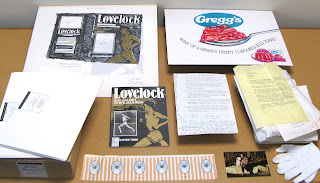Watching TV’s ‘Briscoes Lady’ promoting another birthday sale, few would be aware that the birth of the Briscoes company dates to the eighteenth century.
It was probably William Briscoe who established the firm in Wolverhampton, Staffordshire, sometime around 1750. One reference mentions a balance sheet dating from 1756 and another gives the establishment date as about 1768. In 1781 members of the Briscoe family signed a partnership agreement. Headquarters eventually moved to London, with branches established in the West Indies and South America. A Melbourne offshoot was established in about 1854, and New Zealand operations opened in Dunedin as Arthur Briscoe & Co. in 1863. In New Zealand the company operated primarily as wholesale ironmongers and hardware merchants, but with some retail trade.
Arthur Briscoe, one of the company partners in England, probably never visited New Zealand. The founding manager in Dunedin was Hugh MacNeil, who had begun his working life as an ironmonger in Glasgow before managing Briscoes in Melbourne. He became a partner in the firm in 1880 and gained managerial control of both the New Zealand and Australian operations.
 |
| Arthur Briscoe & Co billhead, from MS-0989/058 |
The lithographed billhead here, dated 14 July 1886, shows that different parts of the organisation were styled in different ways: Wm Briscoe & Son (Wolverhampton and London), Briscoe & Co. (Melbourne), Briscoe, Drysdale & Co. (Sydney), Briscoe Bros (Jamaica), and Arthur Briscoe & Co. (Dunedin). In the 1890s branches were established in Wellington and Auckland as Briscoe, MacNeil & Co.
The billhead features the company’s buildings on the corner of Princes and Jetty streets, which were designed by R.A. Lawson and opened in 1872. An Otago Daily Times report from that year describes a company importing directly from Europe and America, with an average of 100 tonnes of goods unloaded at Port Chalmers every week. Stock included such diverse items as kitchen stoves, umbrella stands, lamps, and lawn mowers (‘a wonderful little machine of recent invention’). Some goods, such as enamel kitchenware and cooking utensils, were similar to items sold in Briscoes stores today, but linen and soft furnishings have only become staples in recent decades. Much business was directed towards the building trade, and at a separate iron yard in Bond Street there was much in the way of iron bars, piping, and sheet iron, with a supply of up to 150 tonnes of nails in stock at any one time. The company also imported tea for many years.
Briscoes moved to new premises in Crawford Street in the 1900s and the old building was later occupied by T. & G. Life. They demolished it in the 1950s to put up the building now known as Upstart House. Briscoes’ head office moved from London to Melbourne in 1958, and then to New Zealand in 1970. The parent company was purchased by Merbank Corporation of Australia in 1973 and transformed from a wholesaler of imported goods to a general merchandise retailer. Briscoes Group Ltd was purchased by the R.A. Duke Trust (of New Zealand) in 1990 and became a public company in 2001. As of 2011 it has 54 Homeware stores and 32 Rebel Sport sporting goods stores throughout New Zealand.
Hocken holds some financial and other records of Briscoe & Co., 1865-1970, under the reference number MS-3300. The billhead is from the Preston family papers (MS-0989/058).
Blog post written by David Murray, Archivist (Arrangement and Description)



